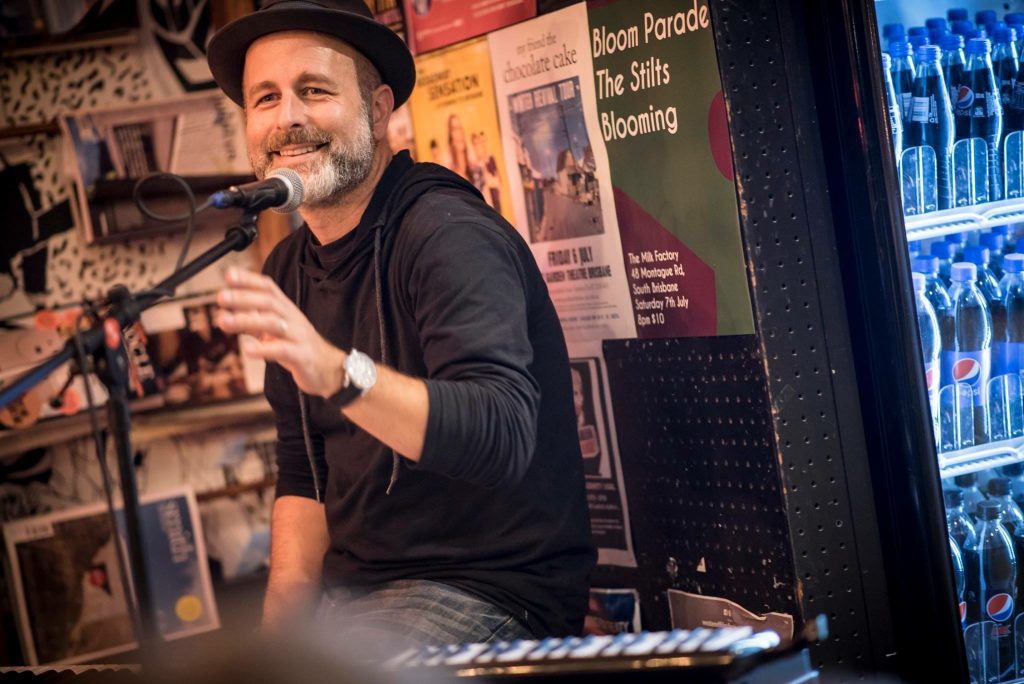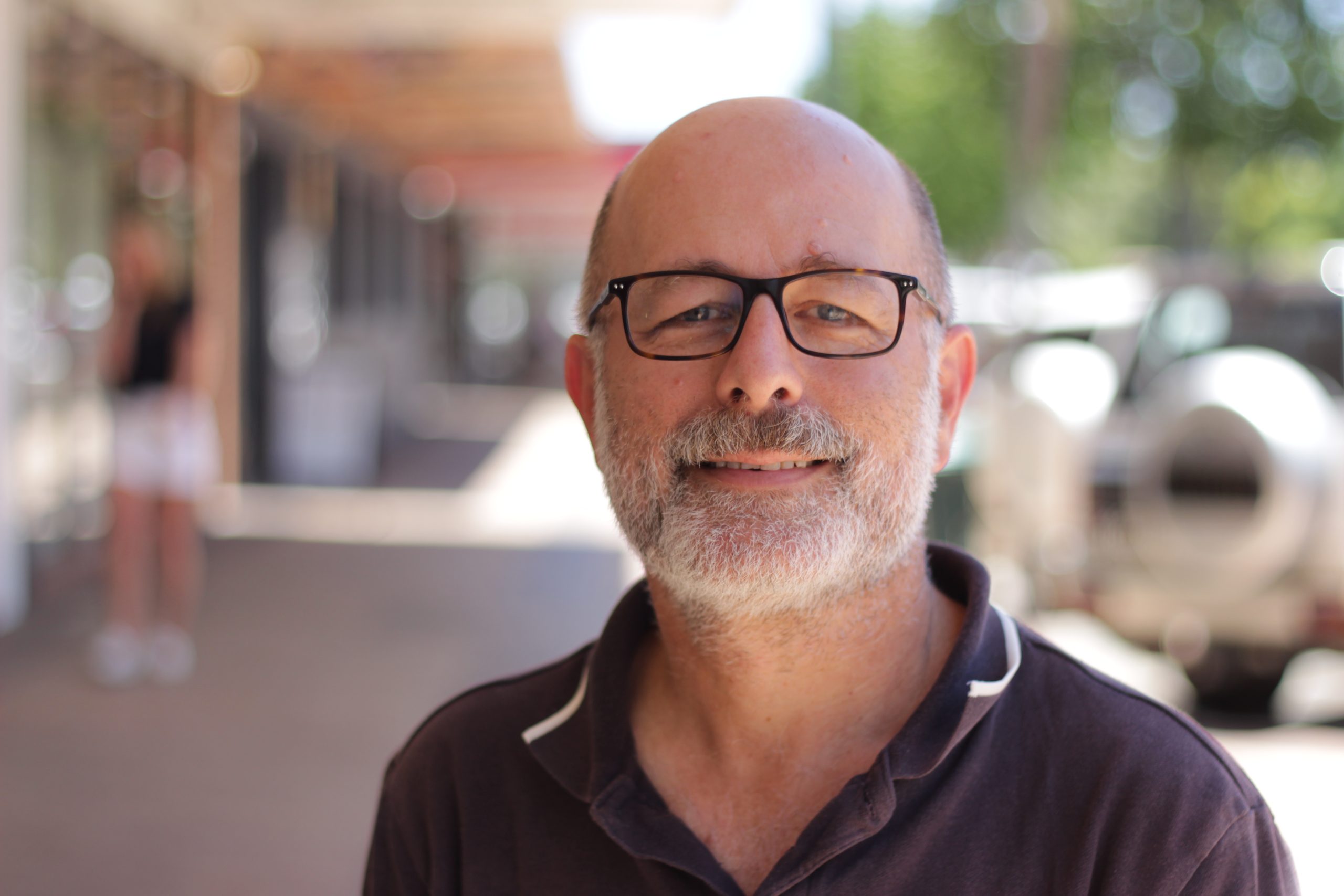New Gunnedah resident Anthony Bishop is many things – a member of a rock band, husband and father, former business owner and state political candidate, an adopted son and passionate advocate for children in foster care.
But perhaps what Mr Bishop is best known for is as a researcher of new medicines.
He has spent a career dedicated to finding solutions to disease and illness and could be on the cusp of finding a drug to help treat pancreatic cancer – although the odds of success are slim at best.
“About one per cent of the drugs I work on get to market,” Mr Bishop said.
“It’s just the way things are.”
Such is the fiscal rigour and seemingly endless timeline of the pharmaceutical development, many drug trials don’t make it through the testing stage let alone the government’s regulatory process.
Nevertheless, there is always hope a breakthrough might be just around the corner and Mr Bishop’s work with pancreatic cancer could be a game-changer.
“The drug we’re working on helps the chemotherapy work better, so hopefully it will help people live longer and live better,” he said.
Pancreatic cancer occurs when malignant cells develop in part of the pancreas – an organ which helps the body digest food and makes hormones that control blood sugar levels.
Mr Bishop said the disease has moved from number four in the list of cancers that kill people, to number two – primarily because symptoms look similar to diabetes. Because so much of the population is now overweight, the cancer is often missed or diagnosed later which means the time a person is expected to live after diagnosis is just 6-8 months.
“It’s also becoming more common, so it will kill more people,” he said.
Even if drug trials are successful, the timeframes to reach commercial manufacturing are exceptionally long, often taking up to a decade before the drug is administered to patients.
“Everything takes long – clinical trials take years,” he said. “From the moment you start putting a drug into people to when it could be on the market is generally about 10 years.”
Once a new drug has been researched, Mr Bishop said the drug proceeds into development. It is run through various examinations in test tubes, then animals, before being trialled in healthy humans and ultimately patients of the disease.
Afterwards, drug developers work out the best dose and move into large scale human trials.
“It’s about making sure the drug does what we want it to do and generally that it’s safe and reliable,” he said.
“It can be a miracle drug for you but not so great for someone else.”
The same precautions were taken for COVID vaccine development but on an unprecedented scale.
Mr Bishop said seemingly infinite resources were poured into the research and drug trials around the world.
“When it was announced they were going to do a COVID vaccine in 12 months, people scoffed,” Mr Bishop said. “It was a brave prediction, but they were able to do it without taking short cuts.”
Mr Bishop said given the enormous, global market for the COVID vaccine, pharmaceutical companies scaled up the research and development to unprecedented levels.
The typical time and money constraints were virtually abandoned as companies raced to compress a 10-year process into a matter of months.
“In a general sense you’re trying to avoid the risk of spending money unnecessarily,” he said.
“But Pfizer for example, instead of [the normal process] doing an experiment, going to a committee, proposing a budget, then doing the next experiment, then proposing the next budget … they lined up everything up at once.
“Usually, you would make a couple of milligrams [of test drug] but they went completely nuts and scaled up instantly.
“They started the [COVID] manufacturing process at billion dose scale.
“They did all the test tube and animal tests all at once, pre-contracted the clinical trials … everything was ready to go as soon as they pushed the button.”
Meanwhile, the regulatory bodies such the Food and Drug Administration in the United States, were ramping up approval timeframes to “miracle” levels to meet the insatiable demand for COVID vaccine by reviewing data as it was available.
“[The FDA] usually review at the end but because this was all in a hurry, they were analysing the data on the drug as they produced it – they were reviewing in real time so when the authorisation came, they could approve them instantly,” Mr Bishop said.
“That is a miracle circumstance, that does not happen in normal life.
“It’s possible but not realistic.
“In extraordinary circumstances, you can do extraordinary things.”
Mr Bishop started his career in a pathology lab in Brisbane before moving to Melbourne where he joined a rock band – he still plays in a Meatloaf tribute band in Brisbane.

Gunnedah’s Anthony Bishop, whose professional career has revolved around pharmaceutical research, also plays piano in a Meatloaf tribute band.
Photo supplied
He continued working in the research field in the early 1990s and one of his first projects involved growing hamster ovary cells independently of the animals, before genetically engineering them to make human growth hormone. Mr Bishop said it was “cutting edge stuff” in its day.
He would later meet his wife, Jane, and moved to Singapore where he worked on several projects. He also helped co-start a company in Malaysia that was working on drug development for schizophrenia treatment.
While overseas the couple also started a family – first their eldest son and then adoption of their second child.
“I’m adopted and we adopted our youngest son from the Philippines,” Mr Bishop said.
On their return to Australia, the couple settled in Queensland, where Mr Bishop felt passionately about the lack of permanency for the state’s children in care.
It spurred him to run as a Liberal-Nationals Party (LNP) candidate for the seat of Bulimba at the 2020 Queensland election.
The election was held in the middle of COVID and was particularly tough for Mr Bishop given who he was up against.
The incumbent for the Bulimba seat was the Minister for Child Safety, Youth and Women and Minister for the Prevention of Domestic and Family Violence, Di Farmer.
Despite the odds, Mr Bishop recorded 34.2 per cent of first preference votes and almost 39 per cent in the two-party preferred stakes to the Labor MP.
The first-time candidate was proud about maintaining a competitive edge at the ballot box.
“We were the only LNP seat in south east Queensland that did not have a major swing toward the Labor Party,” he said.
Mr Bishop has no further political aspirations in the Gunnedah area but has taken a liking to more leisurely pursuits.
Since moving to town about six months ago, he has joined the Gunnedah Tennis Club committee and is also volunteering his time with Gunnedah Conservatorium.
Mr Bishop said his wife, Jane, who works in the mining industry, grew up on a farm in Tasmania and is familiar with the rural and regional lifestyle.
More trials are expected to take place later this year for Mr Bishop’s research on the pancreatic cancer drug.
“It has been through a trial that showed it was safe and well tolerated but we don’t know if it works yet,” he said.
The first statistical glimpses of whether it’s useful are expected later this year. If the drug shows promise, Mr Bishop said the pancreatic cancer treatment could be adopted for similar uses in ovarian cancer patients but ultimately the future for almost all Australian drugs is to go where the big markets are.
In comparative terms, he described Australia’s entire pharmaceutical industry as smaller than southern California.
“Australia is just a tiny corner of the pharmaceutical market,” Mr Bishop said. “Also, our government negotiates really hard on the price of drugs but in the US there isn’t negotiation – it’s just different systems.”
To order photos from this page click here



